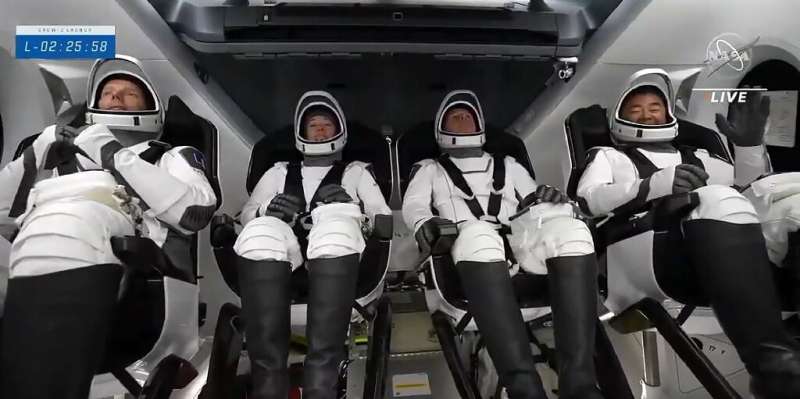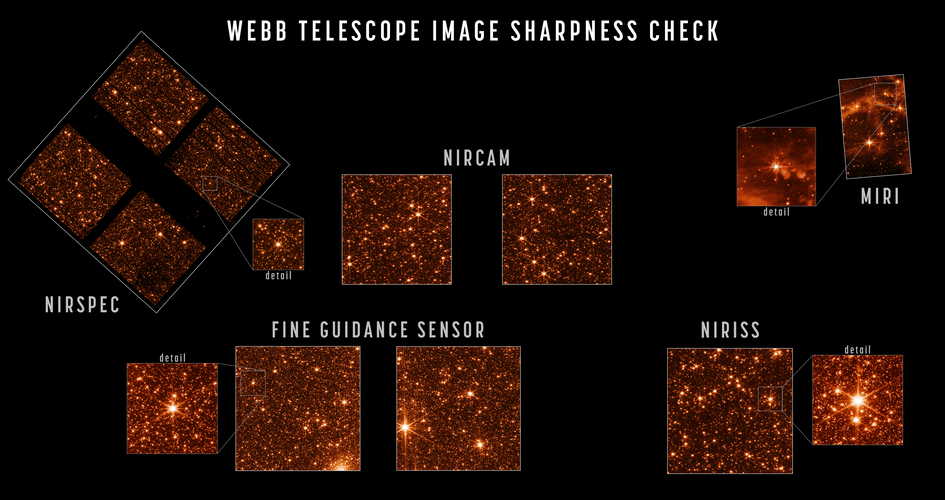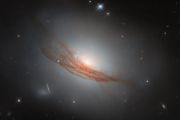
Copernical Team
Satellogic and Geollect to provide geospatial insights for the maritime domain
 Satellogic Inc. (NASDAQ: SATL), a leader in sub-meter resolution satellite imagery collection, has entered into a teaming agreement with Geollect, a world leading geospatial intelligence and data analysis company, to offer unrivalled maritime domain awareness capabilities.
Satellogic will contribute its maritime imagery collection and processing capabilities to Geollect, which will lead th
Satellogic Inc. (NASDAQ: SATL), a leader in sub-meter resolution satellite imagery collection, has entered into a teaming agreement with Geollect, a world leading geospatial intelligence and data analysis company, to offer unrivalled maritime domain awareness capabilities.
Satellogic will contribute its maritime imagery collection and processing capabilities to Geollect, which will lead th AFRL is developing green power for satellites
 The Air Force Research Laboratory, or AFRL, Space Vehicles Directorate is developing a new "green energy" fuel cell technology, that will allow thruster equipped spacecraft to convert chemical energy in its bipropellant into electrical power.
This technology, called BEEPS for Bipropellant Enabled Electrical Power Supply, is being developed by a three-year Seedlings for Disruptive Capabilit
The Air Force Research Laboratory, or AFRL, Space Vehicles Directorate is developing a new "green energy" fuel cell technology, that will allow thruster equipped spacecraft to convert chemical energy in its bipropellant into electrical power.
This technology, called BEEPS for Bipropellant Enabled Electrical Power Supply, is being developed by a three-year Seedlings for Disruptive Capabilit NASA selects USNC for ultra-high temperature component testing facility
 USNC Advanced Technologies, a division of Ultra Safe Nuclear Corporation (USNC), announces it has been selected by NASA to receive a Phase II SBIR contract to develop a proposed ultra-high temperature material testing facility. The specialized equipment could provide an essential terrestrial environment for testing the performance of materials planned for use in space-based nuclear thermal propu
USNC Advanced Technologies, a division of Ultra Safe Nuclear Corporation (USNC), announces it has been selected by NASA to receive a Phase II SBIR contract to develop a proposed ultra-high temperature material testing facility. The specialized equipment could provide an essential terrestrial environment for testing the performance of materials planned for use in space-based nuclear thermal propu Webb Telescope fully focused for the job ahead
 Alignment of the James Webb Space Telescope is now complete. After full review, the observatory has been confirmed to be capable of capturing crisp, well-focused images with each of its four powerful onboard science instruments.
Upon completing the seventh and final stage of telescope alignment, the team held a set of key decision meetings and unanimously agreed that Webb is ready to move
Alignment of the James Webb Space Telescope is now complete. After full review, the observatory has been confirmed to be capable of capturing crisp, well-focused images with each of its four powerful onboard science instruments.
Upon completing the seventh and final stage of telescope alignment, the team held a set of key decision meetings and unanimously agreed that Webb is ready to move Canada to prosecute crimes on the moon

Canadian lawmakers were set to vote Thursday on amending the nation's Criminal Code to allow for the prosecution of crimes committed on the moon.
The proposed change to the law—which was expected to be passed—was described in a 443-page budget implementation bill presented to Parliament this week.
NASA's Webb telescope is now in full focus, ready for instrument commissioning
Canada looks to prosecute crimes on the moon

Canadian lawmakers were set to vote Thursday on amending the nation's Criminal Code to allow for the prosecution of crimes committed on the moon.
The proposed change to the law—which was expected to be passed—was described in a 443-page budget implementation bill presented to Parliament this week.
Webb in full focus
 Image:
Webb in full focus
Image:
Webb in full focus NASA's Crew-4 docks at ISS
 NASA astronauts Mission Commander Kjell Lindgren, Pilot Bob Hines, and Mission Specialist Jessica Watkins, and Mission Specialist Samantha Cristoforetti of ESA now are aboard the ISS following Crew Dragon's hatch opening. Crew-4 joins Expedition 67 crew of Raja Chari, Thomas Marshburn, and Kayla Barron, all of NASA, Matthias Maurer of ESA, and cosmonauts Oleg Artemyev, Sergey Korsakov, and Denis Matveev of Roscosmos.
NASA astronauts Mission Commander Kjell Lindgren, Pilot Bob Hines, and Mission Specialist Jessica Watkins, and Mission Specialist Samantha Cristoforetti of ESA now are aboard the ISS following Crew Dragon's hatch opening. Crew-4 joins Expedition 67 crew of Raja Chari, Thomas Marshburn, and Kayla Barron, all of NASA, Matthias Maurer of ESA, and cosmonauts Oleg Artemyev, Sergey Korsakov, and Denis Matveev of Roscosmos. Samantha Cristoforetti and the rest of Crew-4 arrives at the International Space Station
 Video:
00:01:34
Video:
00:01:34
ESA astronaut Samantha Cristoforetti and NASA astronauts Kjell Lindgren, Robert “Bob” Hines and Jessica Watkins arrive at the International Space Station after docking at 01:37 CEST on Thursday 28 April 2022.
Collectively known as Crew-4, the four astronauts were launched at 08:52 BST/09:52 CEST Wednesday 27 April from NASA’s Kennedy Space Center in Florida USA. Transit to the Station is expected to take under 24 hours.
Samantha is the third ESA astronaut to travel to the orbital outpost in a Crew Dragon. During the journey she and Jessica will serve as mission specialists. Kjell is Crew-4 Commander and Bob
































